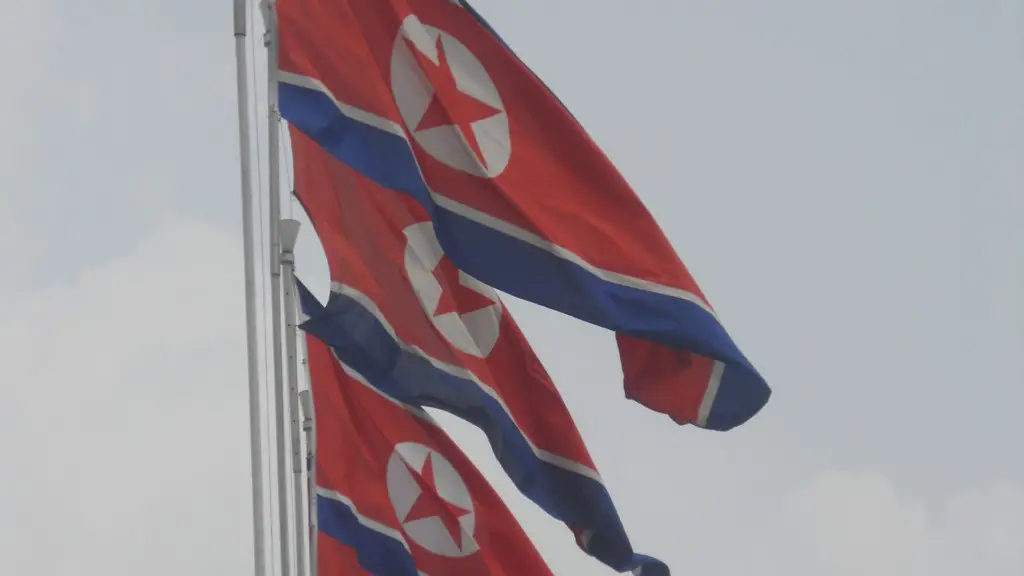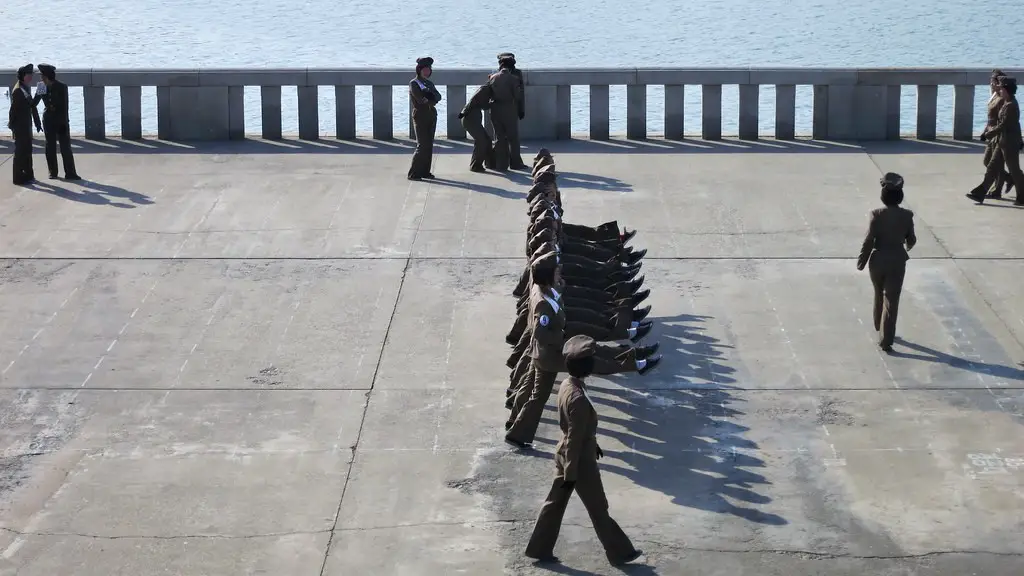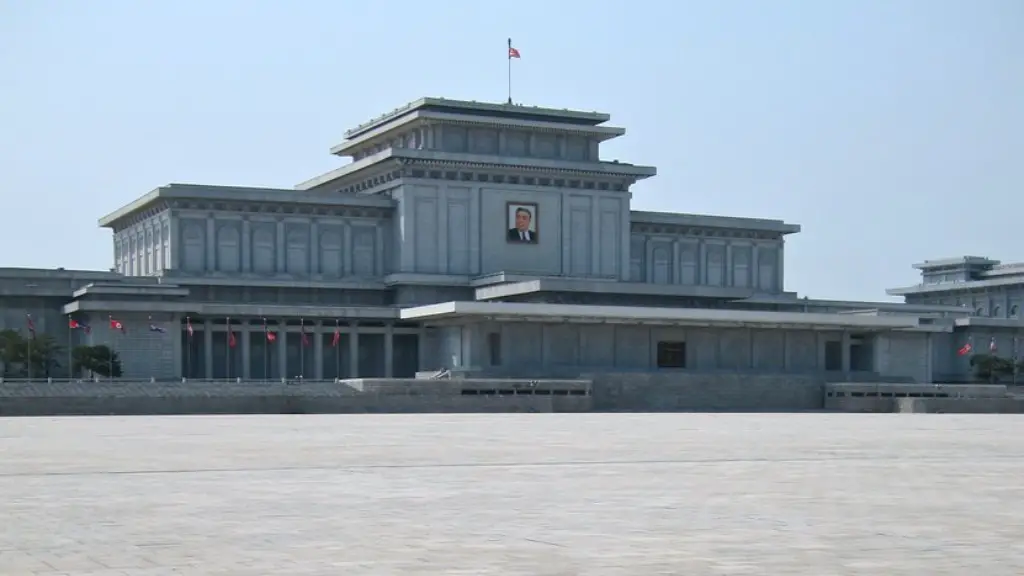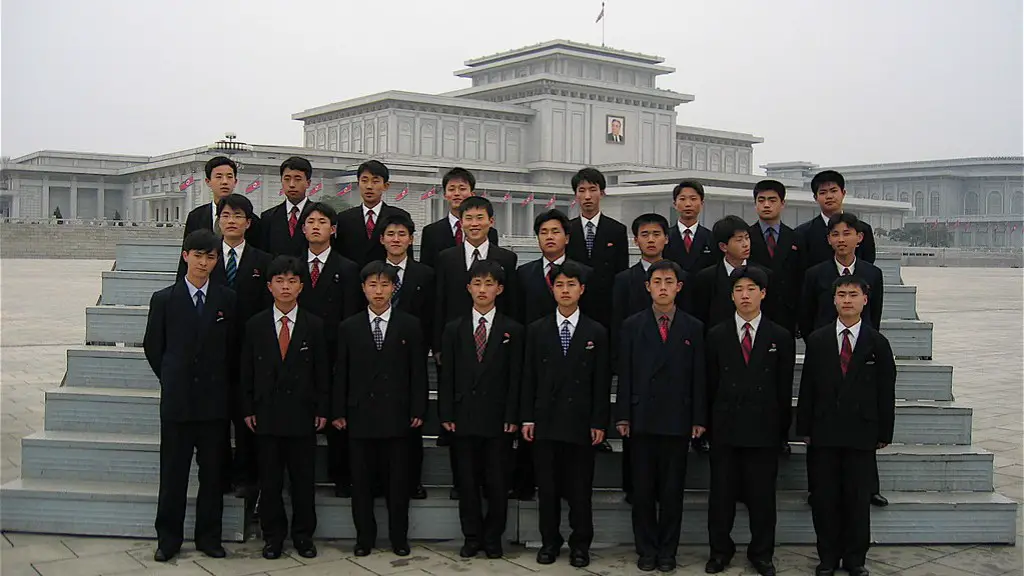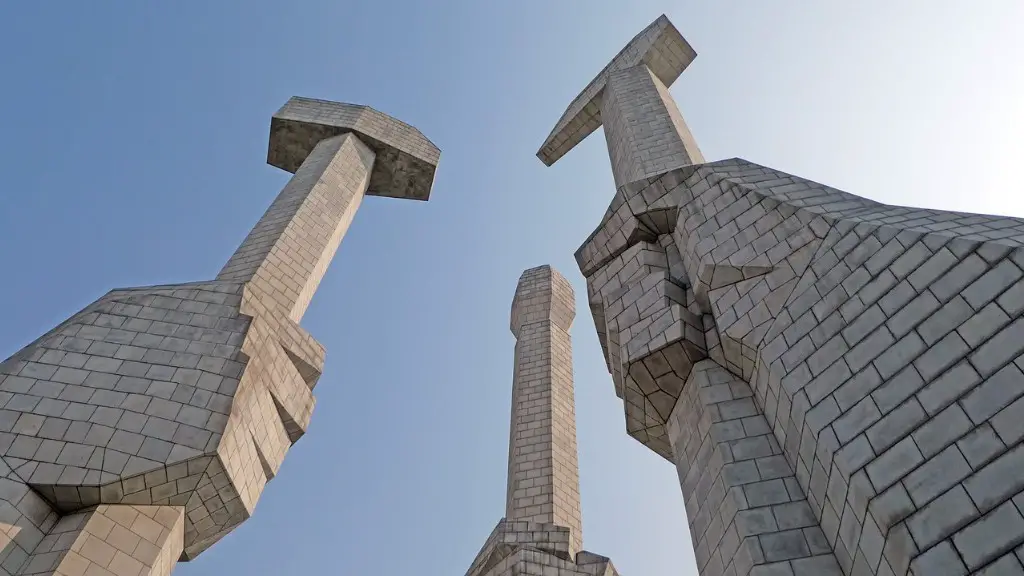North Korea has long been accused of having a nuclear weapons program, and recently came under fire from the international community for launching a successful satellite into orbit. The nation’s nuclear weapon programs have been debated for decades, and many people wonder why North Korea has them in the first place. In this article, we’ll explore the various motivations behind North Korea’s nuclear program and investigate whether or not it’s a legitimate defense or an aggressive power play.
The first and most obvious reason North Korea has nuclear weapons is for defense. Due to its small size and location between China, Russia, and South Korea, North Korea has long felt that it needs some level of protection from outside forces. Acquiring nuclear weapons is one way of ensuring that any outside nations will think twice before attacking.
Proponents of North Korea’s nuclear program also cite the example of other nuclear-armed nations who, despite their armament, have maintained peace and security. Countries like India and Pakistan, who have both managed to maintain peace despite being nuclear-armed, serve as a positive example for North Korea.
Some experts have attributed North Korea’s nuclear program to its isolationist politics. After the Korean War and the subsequent division of the Korean Peninsula, North Korea has steadfastly refused to open its borders or engage in meaningful diplomatic negotiations with other nations. In this context, acquiring nuclear weapons could be seen as a way of keeping the nation secure while still maintaining its isolation.
Of course, not everyone believes that North Korea’s nuclear program is a legitimate defense measure. Critics of the program point to the nation’s history of aggression and instability as evidence that its nuclear weapons are designed to give it a military advantage. They cite the nation’s repeated threats of nuclear strikes against other nations, as well as its refusal to abide by international nuclear non-proliferation treaties.
The Political Ramifications of North Korea’s Nuclear Program
North Korea’s nuclear program has had far-reaching political ramifications. The international community has struggled to find a way to counter the nation’s refusal to abide by international non-proliferation rules. This has led to a series of sanctions against North Korea that have only served to further isolate the pariah state.
At the same time, North Korea’s nuclear program has been a source of concern for its neighbors, especially South Korea and Japan. Both nations are well within the range of North Korea’s missiles and are vulnerable if the country were to ever use its nuclear arsenal.
The United States and other Western powers have also been eager to find a resolution to the issue of North Korea’s nuclear program. Though no solution has been forthcoming, the US has engaged in a series of high-level talks with North Korea in an attempt to broker a peaceful resolution.
The Role of Sanctions and Negotiations
In response to North Korea’s continued development of its nuclear program, the international community has imposed a series of economic sanctions against the country. These sanctions are designed to limit the regime’s ability to import vital resources, such as fuel and food.
At the same time, the US and other nations have been pushing for a peaceful resolution to the issue of North Korea’s nuclear program. In recent years, the US has presented a series of proposals to North Korea in an effort to incentivize the regime to abandon its weapons program.
Unfortunately, these efforts have so far failed to bring about much progress. North Korea has largely refused to engage in meaningful negotiations, prompting the international community to wearily consider other options.
The North Korean People
As its nuclear program has come under increased scrutiny, North Korea’s citizens have suffered the consequences. The country’s repressive regime has imposed a number of restrictions on its citizens, such as banning access to foreign media and restricting their access to the internet.
The economic sanctions imposed on the country have only made matters worse. The sanctions have limited the regimes ability to import resources, leading to an increase in the nation’s already high poverty levels. This has forced many North Koreans to turn to the black market in order to survive.
Though the international community has put immense pressure on North Korea, the country’s people continue to suffer the consequences of a regime that is increasingly isolated and desperate.
Espionage and Cyber Attacks
Given the secrecy shrouding the North Korean regime, it’s no surprise that the country has been accused of engaging in espionage and cyber attacks against other nations. In recent years, the country has allegedly hacked into the computers of numerous countries, including South Korea, Japan, and the US.
Though there is no definite proof of these attacks, it’s likely that North Korea is using cyber warfare as a means of gaining political leverage. By stealing secrets and performing cyber attacks, North Korea is able to gain intelligence and weaken the security of other nations.
Though cyber attacks can be an effective tool for gaining power, they come with risks. As cyber threats become increasingly sophisticated, North Korea could find itself in hot water if its hackers are caught red-handed.
International Relations with North Korea
The issue of North Korea’s nuclear program has been a source of heated debate among the international community. As the US and other countries continue to push for a peaceful resolution, other nations have sought to establish closer ties with North Korea.
A number of countries, such as China and Russia, have sought to strengthen ties with North Korea in an effort to defuse the crisis. In doing so, these countries hope to encourage North Korea to abandon its nuclear program, and open up to the rest of the world.
At the same time, it’s important to remember that North Korea’s nuclear weapons are not the only issue causing tension between the nation and the rest of the world. The regime’s poor human rights record and its oppressive restrictions on free speech and dissent, are other major issues of contention.
The current situation in North Korea is far from ideal, and there are still many unanswered questions concerning the nation’s nuclear program. Though the international community has taken steps to reign in North Korea’s nuclear ambitions, it’s clear that there is still a long way to go before the issue can be resolved.
